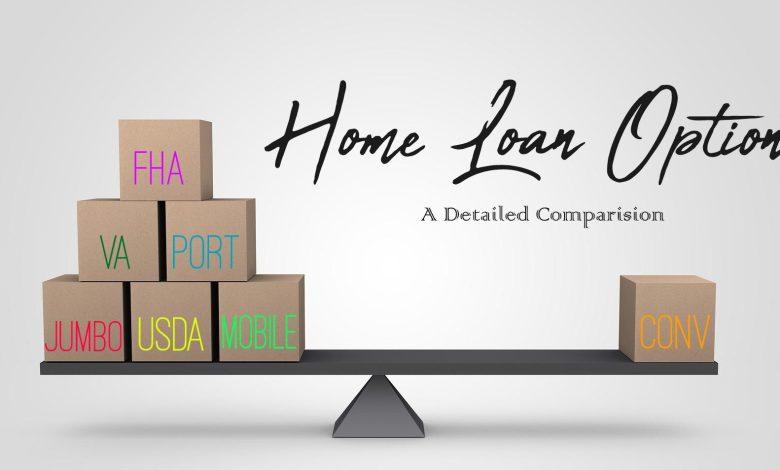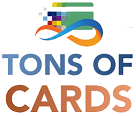Home Lending Options, Private Lenders, FHA and Other Government Loans for Home Buyers
Compare Top 5 Mortgage Lending Structures and Explore Your Best Rates

When it comes to the various types of mortgage loans available to most consumers now days there are basically only 4 well known types of home loans, however, each may be marketed under a multitude of names making it seem as if there are more options than there really are. Below we will break each of these 4 primary home loan options down and further explain each.
What is a Home Loan?
A mortgage loan is one in which, in addition to the personal guarantee, the property is affected as a guarantee of the loan payment. This characteristic is what makes it possible for mortgages to have a cheaper interest than other types of loans offered by financial institutions. In addition, as the amount of the investment is high, the term for its return is usually longer, calculated to facilitate your payments. The offering of mortgage loans are very wide and the multitude of names under which they are marketed can make it difficult for us to choose. But, according to the Ministry of Consumer Affairs, there are mainly four basic types of loans:
Fixed interest
The interest rate remains constant throughout the life of the loan: raise or lower interest rates, the client will always pay the same every month. That gives you some security, but it also has the disadvantage of not being able to benefit from the rate cuts. It is, therefore, a decision that can be won or lost. Another characteristic of this type of loan is that they usually have a tighter term to repay them and the commission for early repayment is higher. This last point is important to take into account if you plan to allocate part of your future savings to reduce the amount of the loan installments or the term.
Variable interest
This type of loan does allow you to benefit from interest rate reductions, although, logically, it also includes increases. Its main advantage is that the interest on the loan is never out of date, since it is periodically – usually every twelve months – updated at market prices. These are its main characteristics: the interest varies at the rate of the market, the repayment term is longer – it can reach thirty years, depending on the age of the borrower – and the commission for early repayment does not usually exceed one per hundred. In this modality it is important to distinguish between what is the interest rate for the first period -valid for the initial six or twelve months-, which sometimes comes to be like an initial promotion, and the one that will govern subsequent years and which will be determined by the indices plus the added spread explained later.
Mixed interest
They are thus known to those that combine a period in which the interest remains fixed and another in which it is variable and adjusts to the market. The repayment term and early termination fees are usually similar to the variables. They combine the advantages and disadvantages of fixed and variable loans although, by limiting two different periods, the risks are more diluted.
Fixed fee
They are variable rate loans but they are similar to fixed rate loans to the extent that the client always pays the same installment regardless of the evolution of interest rates. The difference is that if the rates go up, instead of paying more fees, the repayment term is lengthened; and if they go down, it is shortened. Your main problem is uncertainty. The client does not know for sure when he will finish paying the loan, since it depends on the evolution of the rates. In exchange for this unknown, you have the assurance that your installment will not vary by one euro throughout the life of the loan.
How to Determine the Best Home Loan
The mortgage loan process can be complicated, but fortunately we are here to help. There are many different types of loans that you may qualify for and not all mortgages are the same. Conventional, FHA, VA, USDA or HARP? Jumbo or Conventional? The right type of loan is based on your individual situation. In this article we will outline some of the unique features available with each type and give you a better understanding of what they mean so you can find the best fit for your needs.
Types of Home Loans Offered
Most licensed Mortgage teams or “loan officers” are well qualified to guide any interested person on the different types of mortgage loans you can choose from; among them to name a few are Conventional, FHA, VA, USDA, HARP or jumbo.
Conventional: This loan offers the consumer fixed and stable payments that allow him to plan his financial life without the need to worry about interest increases. There are two types of conventional loans: “conforming” and “non-conforming”. For those applying for a “conforming” loan, they are based on the standards set by investors in the secondary market. Meanwhile, the “non-conforming” loan offers greater flexibility to the client as it is not subject to the demands of the secondary market, but rather allows each bank to establish its credit policy. Conventional loans are the most popular type of mortgage in America. They come with a maximum loan amount and down payment that is based on your credit score, income, debt to income ratio and other factors. Conventional mortgages have been around for over 100 years so they’re tried and true!
FHA: Designed for those people who find it difficult to qualify for a loan due to their economic level, credit history or the ability to put a good down payment. FHA mortgages offer clients lower down payments, eligibility with low credit scores or no available credit, the opportunity to refinance if the buyer experiences financial problems, and more. FHA loans are typically insured by the Federal Housing Administration (FHA) which allows borrowers to purchase homes with as little as a 0% down payment when their credit scores meet certain standards or if they’ve had steady employment for at least two years before applying. These government insured home buyers insurance policies protect lenders from losses incurred due to defaults on these types of loans. You’ll be required also pay an annual fee upfront plus an ongoing monthly fee.
VA: A loan guaranteed by the Department of Veterans Affairs, designed to assist veterans, reservists, active members, and their spouses in purchasing a home. VA loans are specific to those that have served in the U.S. military and can be used as a first time home buyer, refinancing or buying investment property for rental income. These loans are guaranteed by the Department of Veteran Affairs (VA) which means you’ll usually only need a small down payment with no mortgage insurance required! The downside is interest rates tend to be higher than Conventional mortgages because they’re not based on your credit score alone but also involve an evaluation of your finances and ability to repay the loan without putting yourself at risk financially due to obligations incurred from service requirements such as taking care of dependents, paying taxes on earned income or repaying debts arising from using any pay advance money received from the military.
USDA: Federal loan created by the Department of Agriculture (USDA) to assist a loan applicant with limited income in finding a home in a rural area. USDA loans are for those who live in rural areas outside of metropolitan cities or urbanized towns and these home buyers have lower incomes than Conventional borrowers with higher debt to income ratios. The U.S Department of Agriculture (USDA) regulates this program which is an insured loan that has a low down payment requirement and borrower does not need mortgage insurance like FHA mortgages do! Interest rates tend to be lower than Conforming loans as well but there are limitations on how much you can borrow due to limited funds available through Federal Housing Administration, guaranteed by States’ departments of agriculture and approved lenders. Additionally, only properties within specific counties qualify – must meet minimum value limits – no second homes allowed so it’s great if you’re looking to buy your first home!
HARP: A refinancing program created by the federal government and managed by the Federal Housing Finance Agency (FHFA). HARP seeks to help homeowners who are up to date on their mortgage payments, but cannot refinance their home as the present value has depreciated more than the current loan balance. This type of loan applies to anyone who has a mortgage guaranteed by Fannie Mae or Freddie Mac and has closed before May 31, 2009. It will provide significant savings to the client by lowering their monthly payment, reducing their interest rate, among others.
Jumbo: Specialized loan to expand your home or buy a luxurious property from $417K to $2.5M. It is available to those interested in buying or refinancing, as well as allowing the client to request a fixed or adjustable loan. Taking into consideration other factors such as your credit history, your gross income, current interest rate, how long you plan to own the home, the amount of money available for a down payment, among others, you can determine which of the loans is best for you. Jumbo loans are Conforming mortgages that exceed the maximum loan amount for Conventional or FHA loans and require a 20% down payment. This is typically found in high priced areas where properties cost more than $700,000 but you may also have access if you work for an employer who offers these types of mortgage benefits. You’ll need mortgage insurance with this type which will be higher than Conventional rates due to increased risk associated with lending on such large amounts!
Our Concluding Thoughts
So with everything mentioned above which type of home loan is best for me? There’s a lot to consider when it comes to the different types of loans available. In order to answer this question, you’ll need to know what your needs are and which factors matter most in determining which type of loan will work best for you. We’ve outlined some key points below that may help guide you as you make your decision about how much house (or other property) can be financed with one or more mortgages and at what interest rate over various periods. Do I qualify for an FHA Loan? How do VA Loans differ from Traditional Home Purchase Loans? What does HARP stand for again?? You’re not alone if these questions have been on your mind lately!

